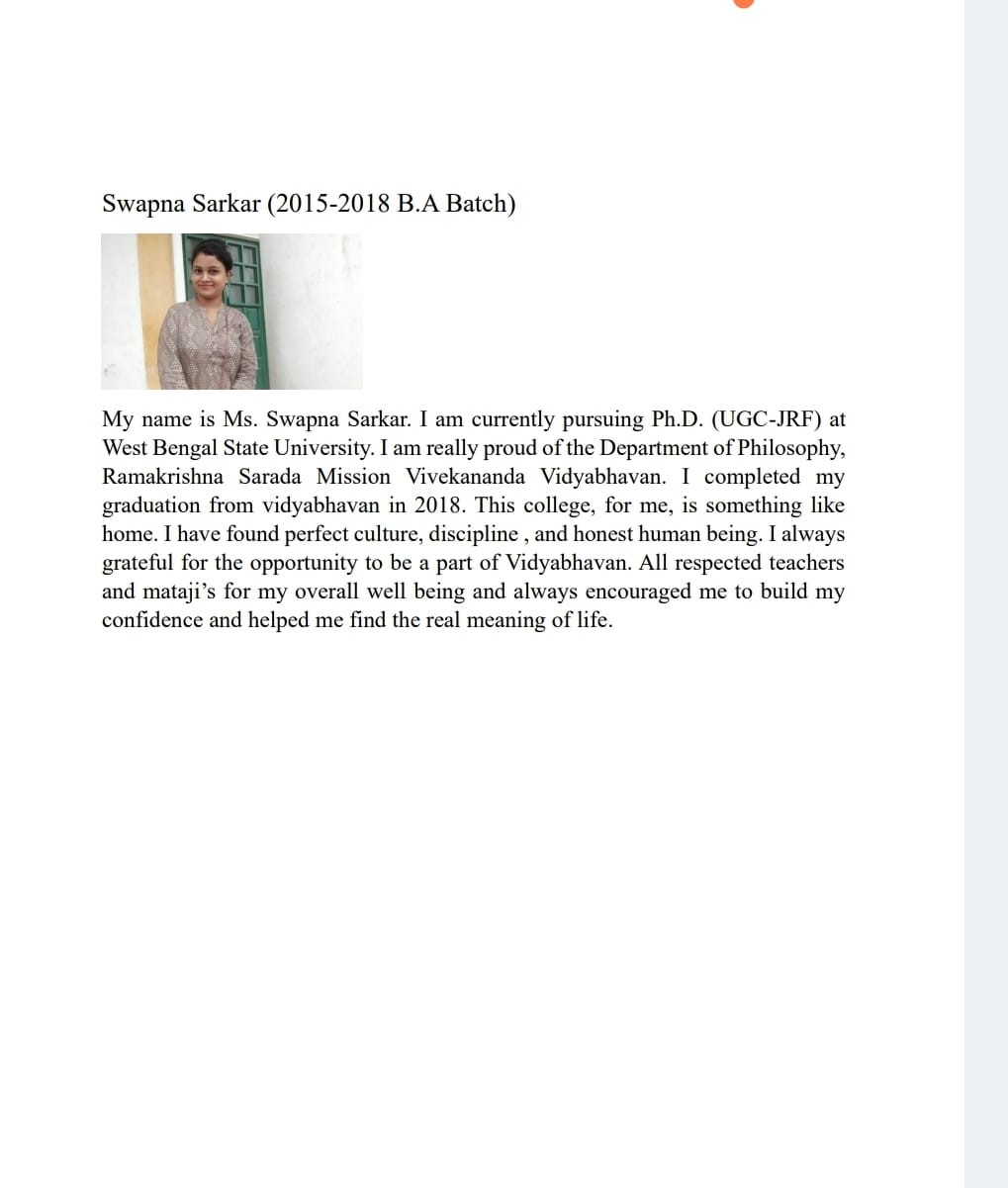
Initiation and brief overview
Started in 1961, the Department of Philosophy is operating as an Honours Department since 1963. Moreover the Department has started a PG course (MA in Philosophy) since 2016 .From its inception, the Department has a sustained good academic record with University rank-holders from many of its past and current batches.
At present, the Philosophy Department has a five-member faculty (2 Associate professor and 3 Monastic Professors).
Infrastructure
The Department maintains a Seminar Library constituting of relevant books and materials of reference that are not part of or available in the College Library.
A computer, a laptop and a LED television are parts of the Departmental assets and are used for enhancing teaching-learning and for documenting and recording special events.
Vision and outlook
Philosophy is the study of fundamental truths, principles of conduct, and understanding. In a broad sense, philosophy is an activity people undertake when they seek to understand fundamental truths about themselves, the world in which they live, and their relationships to the world and to each other.
Philosophy is an epistemic attempt to study the fundamental truths , principles of conduct and logical understanding of problems. It is a speculative discipline with the vision to develop logical, analytical and critical abilities of thinking. It seeks to establish standards of evidence, provide rational methods for resolving conflicts, and create techniques for evaluating ideas and arguments. The Department of Philosophy of this college reflects this vision in its endeavour to initiate the intellectual capabilities in the mind of the young scholars.
We all know Logic is an integral part of Philosophy. Logic forms the rational pillars of critical philosophical thought process. The recent development in the area of computer science and application, reflect a need to learn logical reasoning skills as it helps in defining problems, get desired outcomes , analyze data logically and evaluate results. Logic also plays an important role in the design of new programming language and is necessary for work in artificial intelligence and cognitive science.
Very recently, the department is planning to introduce two years Diploma course in Application of Logical Reasoning in Computer Science for our students to encourage higher order logical thinking and help them explore new fields of research and studies after graduation and post graduation.
Methods of teaching
Apart from classroom lectures or the chalk and talk method, the Department uses ICT based classes and audio-visual aids, such as Powerpoint presentations, to stimulate learning interests. The Department also organizes several extension lectures to widen the knowledge and skills of its students. Regular assessments through written classwork and class-tests and end of the semester mock-exams ensure that the students are well prepared for their final end-semester examinations.
Email: philosophy@rksmvv.ac.in
Syllabus:
WBSU syllabus for Philosophy BA under UGC prescribed syllabus template for CBCS & NEP
https://wbsu.ac.in/web/wp-content/uploads/2024/01/Philosophy-NEP-Syllabus.pdf
Programme Outcomes: CBCS
PO1: Communication Skills: Confident to speak, write, read, listen and understand the English language and one or more Indian languages. Relate the ideas, knowledge, books, and people. Think and decide rationally, and adopt technology and electronic/print media in disseminating thoughts, facts and realities.
PO2: Social responsibility: Develop an obligation to act for the benefit of society at large. Cultivate the responsibility to maintain a balance between the economy and the ecosystems. Nurture a moral obligation to minimize the adverse effect on those immediately around them.
PO3: Critical, logical and rational thinking: Acquire the ability for objective, rational, sceptical, logical, and unbiased analysis of factual evidences to form a judgment or conclusion. Enhance the process of rational thinking, problem solving and analytical evaluation from different perspectives.
PO4: Enlightened and effective Citizenship: Cultivate progressive citizenship for a knowledge society for peace and prosperity of nations and the world. Develop clear, rational and progressive thinking. Participate in decision-making concerning the society and upholding national development, integrity, unity and fraternity.
PO5: Values and Ethics: Recognize the importance, worth and usefulness of principles and standards of behavior and moral dimensions of one’s own decisions and judgement. Be aware of various aspects of social and moral responsibilities through social, outreach, and cultural activities during the programme. Shape a personality which understands, appreciates and respects ethical, religious and cultural diversity and plurality.
PO6: Sustainable development: Understand, organize and promote the principle of human development goals by sustaining the ability of natural systems, natural resources and ecosystem services upon which the economy and society depends. Giving importance to CARE: Connectivity, Attentiveness, Responsibility and Empathy.
PO7: Life-long process of Learning: Cultivate the proficiency to engage in independent, life-long and progressive learning abilities in the broadest context of changing socio-politico-economic-cultural and technological scenario.
PO8: Employment Skills: Be prepared for employment in various fields by developing reading, writing and comprehension skills which make the students fit and eligible for jobs in the government and non-government sectors. A broad-spectrum study of various subjects helps the students compete in various examinations for employment after graduation.
Paper Name & Course Outcomes:
CC1 History of Western Philosophy- I
To have epistemological and metaphysical knowledge about fundamental philosophical truths , principles of conduct and logical principles, to understand the nature and scope of the discipline and acquire the diverse views of western philosophers, of the ancient, medieval and modern era.
CC2 Western Logic
To learn logical reasoning skills as it helps in defining problems, get desired outcomes , analyze data logically and evaluate results, to understand the design of new programming language to get acquainted with the underlying logical reasoning related to cognitive science, and artificial intelligence, to get introduced to the basic logical theories, rules and patterns and applications.
CC3 Outlines of Indian Philosophy-I
To establish standards of evidence, provide rational methods for resolving conflicts, and create techniques for evaluating ideas and arguments, to get acquainted with the Indian knowledge system, its higher order thinking process through the study of the Metaphysics and Epistemology of various schools such as Charvaka, Buddhism, Jainaism and Nyaya – Vaishesika, Bauddha and Vedanta system.
CC4 Western Logic-II
Reasoning is an aptitude which goes to human being only. Logic is that system which inculcate this rationality.Students get to know Symbolic logic, the value of special symbols, truth-functions, dagger and stroke functions, truth-tree, Venn diagram, various kinds of statement-forms are the core areas of studying logic.
To give the students the opportunity to understand the shift in the course of philosophical thought, new analytical trend in western philosophical concepts and development of novel philosophical systems and ideologies.
CC6 Outlines of Indian Philosophy
To be familiar with the epistemology and Metaphysics of various schools such as Samkhya ,Mimamha and Vedanta
CC7 Western Ethics
To understand the basic differences between the moral and non-moral acts, the concepts of good and bad, right and wrong, t help the students form a strong foundation of character and personality
CC8 Social and Political Philosophy-Western
To know about the primary concepts of social and political philosophy like society, community, family, caste and class, the theories and ideologies like democracy, socialism, communism etc.
CC9 Psychology & Philosophy of Mind
To get acquainted with the basic psychological concepts, methods of psychological inquiry, the states of mind, memory, dream etc, to analyze different theories of perception, learning, to be aware of different patterns of human mind, consciousness, intelligence and personality.
CC 10 Indian Logic
To think and analyze logically and critically, opens up avenues to venture into our area of higher order critical thinking.
CC 11 Philosophy of Language—Indian and Western
To learn to read philosophical texts, understanding the inner meanings. Philosophy of language concerns quite a large number of topics, including meaning, truth, content, reference, the syntax and semantics of various linguistic constructions, the nature and role of presupposition in communicative interchange, speech acts, figurative uses of language.
CC 12 Ethical and Social Philosophy of India
To get acquainted with the notion of morality, ethical scriptures and Indian value system, to develop an integrated and holistic view of good, bad, right, wrong, what ought to do and what ought not to do in reality, to understand and inculcate healthy the values, to respect life and restore world peace and unity and acknowledge the relation between morality and dharma in Indian context.
DSE 2 Practical Ethics
To analyze, re-think and critically look into the possibilities of the applicability of moral principles and standards to the ethical problems faced by us in everyday life; to open up a vast range of alternative ethical thought process; to discuss various real life situations and debates over the issues and come up with new standpoints in moral thinking.
DSE 3 Philosophy of Religion
To help the students understand the different religious traditions, beliefs and their implications.
CC13 Western Epistemology &Metaphysics
To engage in critical analysis of the fundamental notions of knowledge and truth, to compare and contrast between epistemological theories, to understand the metaphysical underpinnings of philosophical concepts..
CC14 Some Modern Indian Thinkers
To get acquainted with the life and works of modern Indian thinkers such as Swami Vivekananda, Sri Aurobinda , Gandhi and Ambedkar, to understand their beliefs and visions, to find out the relevance of their philosophical teachings in today’s world.
DSE 5 Russell, Problems of Philosophy
To get introduced to Analytic Philosophy through reading of Problems of Philosophy of Bertrand Russell, to learn to understand the philosophical dilemmas and how far they can be resolved.
DSE 6 Hume, An Enquiry Concerning Human Understanding
To be aware of epistemological and metaphysical philosophical questions raised by David Hume, to get an opportunity to read the book written by David Hume – ’A Critical Study of its Origins and Central Doctrines.’
Programme Specific Outcomes
PSO1: Students develop a clear idea about the subject Philosophy, To able to understand the core philosophical concepts, articulate the nature and scope of the discipline, to know, compare and contrast the basic tenets of Indian and Western Epistemological, metaphysical and learn to justify moral philosophical thoughts.
PSO2: –To develop abstract logical thinking through basic introduction to western logic;to able to perform Higher Order Thinking Skill (HOTS), apply logical thinking in solving problems, Data Analysis, AI issues, Cognitive Science and understanding programming language.
PSO3: To able to read learn and understand Indian Philosophical Texts; to establish standards of evidence, provide rational methods for resolving conflicts, and create techniques for evaluating ideas and arguments, to get acquainted with the Indian knowledge system.
PSO4: To understand rationalize and apply Logic in both theory and practice. To inculcate rational ability of mind; to know Symbolic logic, the value of special symbols, truth-functions, dagger and stroke functions, truth-tree etc to resolve complex problems.
PSO5: To develop the skill of critical thinking; to give the students the opportunity to understand the shift in the course of philosophical thought, new analytical trend in western philosophical concepts and development of novel philosophical systems and ideologies.
PSO6: To be familiar with the Indian systems of Philosophy; to understand and evaluate the ethical, epistemological and Metaphysical analysis of various philosophical concepts.
PSO 7: To know about morality, its origin, its theories and application in real-life situations; to understand the basic differences between the moral and non-moral acts, the concepts of good and bad, right and wrong; to help the students develop a strong moral character.
PSO 8: To understand the social structure and how it functions from the philosophical perspective. To know about the primary concepts of social and political issues relating to community, family, caste and class, the theories and ideologies like democracy, socialism, communism etc.
PSO 9: To know the mind-body dichotomy; to get acquainted with the basic psychological concepts, methods of psychological inquiry, the states of mind, memory, dream etc; to analyze different theories of perception, learning; to be aware of different patterns of human mind, consciousness, intelligence and personality.
PSO 10: To think and analyze logically and critically, to discover new avenues of higher order critical thinking.
PSO 11: To learn to read philosophical texts, understanding the inner meanings; to understand truth, content, reference, the syntax and semantics of various linguistic constructions, to analyze the nature and role of presupposition in communicative interchange, speech acts, figurative uses of language.
PSO 12: To get acquainted with the notion of morality, ethical scriptures and Indian value system, to develop an integrated and holistic view of good, bad, right, wrong, what ought to do and what ought not to do in reality, to understand and inculcate healthy the values, to respect life and restore world peace and unity and acknowledge the relation between morality and dharma in Indian context.
PSO 13: To critically analyze the fundamental notions of knowledge and truth; to compare and contrast between epistemological theories; to understand the metaphysical underpinning of philosophical concepts.
PSO 14: To understand and examine the life and works of modern Indian thinkers such as Swami Vivekananda, Sri Aurobindo , Gandhi and Ambedkar, to understand their beliefs and visions, to find out the relevance of their philosophical teachings in today’s world.
PSO 15: To get acquainted with practical aspect of morality; to review and explore a vast range of alternative ethical thought process; to discuss about various real life situations and debates over the issues and come up with new standpoints in moral thinking.
PSO 16: To help the students understand the different religious traditions, beliefs and their implications.
PSO 17: to get introduced to post modern philosophy; to know Analytic Philosophy through reading of Problems of Philosophy of Bertrand Russell, to learn to understand the philosophical dilemmas and how far they can be resolved.
PSO 18: To understand epistemological and metaphysical philosophical questions raised by David Hume, to get an opportunity to read the book written by David Hume – ’A Critical Study of its Origins and Central Doctrines.’
PSO 19: Learners develop skill in analyzing concepts, enquire deep into the philosophical truths and critically assess it.
PSO 20: to get acquainted with critical thinking.
PSO 21: to develop the skill of abstract thinking.
PSO 22: to develop the skill of problem solving through logical reasoning.
PSO 23: to develop gender awareness through the understanding of feminist ethical perspective.
PSO 24: to get aware of the environmental issues and the need for environmental ethics.
PSO 25: to develop concern world peace and sustainable development.
PSO26: To nurture the skill of reflective thinking to enhance the quality of life.
After completion of the course students will be able to:
Cos
Knowledge level
Bloom’s Taxonomy
PSOs mappingCO1
To have epistemological and metaphysical knowledge about fundamental philosophical truths , principles of conduct and logical principles, to understand and analyze the nature and scope of the discipline and acquire the diverse views of western philosophers, of the ancient, medieval and modern era and interpret their ideologies .
Understand, analyse, acquire, interpret.1,3,5,CO2
To learn logical reasoning skills as it helps in defining problems, get desired outcomes , analyze data logically and evaluate results, to understand the design of new programming language to know with the underlying logical reasoning related to cognitive science, justify rtificial intelligence, to get introduced to the basic logical theories, rules and patterns and applications.
Understand, Analyze, know, acquire, evaluate justify, evaluate, know4, 5, 10, 20, 21, 22CO3
To read text, establish standards of evidence, provide rational methods for resolving conflicts, learn to know and understand critically , create techniques for evaluating ideas and arguments, to get acquainted with the Indian knowledge system, examine and evaluate its higher order thinking process through the study of the Metaphysics and Epistemology of various schools such as Carvaka, Buddhism, Jainaism and Nyaya – Vaishesika, Bauddha and Vedanta system.
Read, Know, understand, examine, critique, defend, evaluate, create1,3, 10, 13, 26CO4
Reasoning is an aptitude which goes to human being only. Logic is that system which enumerate inculcate this rationality. Students get to know, analyze,verify construct and apply Symbolic logic, the value of special symbols, truth-functions, dagger and stroke functions, truth-tree, Venn diagram, various kinds of statement-forms are the core areas of studying logic.
Logic, know, analyze, verify, construct, apply2, 4, 10,20, 21, 22CO5
To give the students the opportunity to know and understand the shift in the course of philosophical thought, analyze, justify and compare new analytical trend in post modern western philosophical concepts and development of novel philosophical systems and ideologies.
Know, explain, analyze, justify, compare, contrast, understand1, 19, 21CO6
To be familiar with the epistemological aspect, and understand Metaphysical analysis of various schools such as Samkhya ,Mimansha and Vedanta and learn to know, understand, examine and critique those theories
Know, understand, abstract, examine, criticize.1, 10, 12, 13, 19, 26CO7
To understand and examine the basic differences between the moral and non-moral acts,analyse the concepts of good and bad, compare and contrast the notion of right and wrong, to help the students form a strong foundation of character and personality so that they can apply their moral reasoning in real life situations.
Understand, analyse, compare, contrast, examine, apply,1, 7, 12, ,15, 25, 26CO8
To know about the primary concepts of social and political philosophy like society, community, family, caste and class, understand, review analyze and compare critically the theories and ideologies like democracy, socialism, communism etc.
Know, understand, analyze, compare, contrast, review, criticize.1,8CO9
To get know with the basic psychological concepts, methods of psychological inquiry, understand the states of mind, memory, dream etc, to analyze different theories of perception, learning, to demonstrate different patterns of human mind, examine and analyze consciousness, intelligence and personality.
Know, understand, formulate, examine, inquire, demonstrate, apply, analyze1, 9, 20, 21, 22CO10
To think and analyze logically and critically, opens up avenues to venture into our area of higher order critical thinking.
Know, understand, analyze, critical thinking logic, analyze2, 4, 5, 19, 20, 21, 22CO11
To learn to read philosophical texts, know and understand the inner meanings. Philosophy of language concerns quite a large number of topics, including meaning, truth, content, reference, interpretation of the syntax and semantics of various linguistic constructions, the nature and role of presupposition in communicative interchange, speech acts, figurative uses of language.
Know,read understand, interpret, acquire, critique, corelate1, 2, 3, 5, 6, 11, 13, 17, 19, 20, 21, 22CO12
To get acquainted with the notion of morality, ethical scriptures and Indian value system, compare, contrast and review them to develop an integrated and holistic view of good, bad, right, wrong, what ought to do and what ought not to do in reality, to understand and inculcate healthy the values, to respect life and restore world peace and unity and acknowledge the relation between morality and dharma in Indian context.
Know, understand, interpret, compare, review1,23, , 6, 7,8, 12,15, 16, 21, 22, 25, 26CO13
To know, engage in critical analysis of the fundamental notions of knowledge and truth, to compare and contrast between epistemological theories, to understand the metaphysical underpinnings of philosophical concepts..
Know, understand, study, analyse, conclude, criticize1,11, 13, 19, 20, 21CO14To know and read the life and works of modern Indian thinkers such as Swami Vivekananda, Sri Aurobinda , Gandhi and Ambedkar, to understand their beliefs and visions, to comprehend articulate and find out the relevance of their philosophical teachings in today’s world.Know, understand, comprehend, apply, read, articulate, examine 3, 6, 7, 14,19, 202, 21, 25, 26,CODSE2
To analyze, re-think and critically look into the possibilities of the applicability of moral principles, examine and justify critiically the standards to the ethical problems faced by us in everyday life; to open up a vast range of alternative ethical thought process; to discuss and review the various real life situations and debates over the issues and come up with new standpoints in moral thinking.
Know, understand, analyze, criticize, construct, justify, examine, review, apply 7, 8, 12, 15, 20, 21, 23, 24, 25, 26CODSE3
To help the students know and understand the different religious traditions, explain and defend the beliefs and their implications.
Know, understand, explain, compare, defend1,23, , 6, 7,8, 12,15, 16, 21, 22, 25, 26CODSE5
To know and get introduced to Analytic Philosophy through reading of Problems of Philosophy of Bertrand Russell, to learn to understand the philosophical dilemmas, interpret, justify and clarify them and evaluate how far they can be resolved.
Know, understand, discuss, explain, clarify, justify, interpret1,11, 13, 17, 19, 20, 21CODSE6
To know and understand the epistemological, metaphysical philosophical questions raised by David Hume, to get an opportunity to read, analyze and review the book written by David Hume – ’A Critical Study of its Origins and Central Doctrines.’
Know, understand, read, analyze, review, articulate1, 5, 13, 18,19, 21
POCO MATRIX: CBCS
PO1PO2PO3PO4PO5PO6PO7PO8CO1
CO2
CO3
CO4
CO5
CO6
CO7
CO8
CO9
CO10
CO11
CO12
CO13
CO14
DSE2
DSE3
DSE5
DSE6
Programme Outcomes: NEP
PO1 Disciplinary Knowledge
PO2 Communication Skill
PO3 Critical Thinking
PO4 Logical Thinking
PO5 Problem solving
PO6 Social Awareness
PO7 Analytic Reasoning
PO 8 Cooperation/Teamwork
Paper Name & Course Outcomes: NEP
MA1/DS01 – History of Western Philosophy – I :
To have epistemological and metaphysical knowledge about fundamental philosophical truths , principles of conduct and logical principles, to understand the nature and scope of the discipline and acquire the diverse views of western philosophers, of the ancient, medieval and modern era.
MA2/DS02 – History of Indian Philosophy – I :
To establish standards of evidence, provide rational methods for resolving conflicts, and create techniques for evaluating ideas and arguments, to get acquainted with the Indian knowledge system, its higher order thinking process through the study of the Metaphysics and Epistemology of various schools such as Charvaka, Buddhism, Jainaism and Nyaya – Vaishesika, Bauddha and Vedanta system.
SEC01: Skill Enhancement Course: Cooperative learning in the classroom, and group assignments on SEC courses help learners to work effectively with groups or teams. These activities facilitate cooperative or coordinated effort among the learners.
PSO1: Students develop a clear idea about the subject Philosophy, To able to understand the core philosophical concepts, articulate the nature and scope of the discipline, to know, compare and contrast the basic tenets of Indian and Western Epistemological, metaphysical and learn to justify moral philosophical thoughts.
PSO2: –To develop abstract logical thinking through basic introduction to western logic;to able to perform Higher Order Thinking Skill (HOTS), apply logical thinking in solving problems, Data Analysis, AI issues, Cognitive Science and understanding programming language.
PSO3: To able to read learn and understand Indian Philosophical Texts; to establish standards of evidence, provide rational methods for resolving conflicts, and create techniques for evaluating ideas and arguments, to get acquainted with the Indian knowledge system.
After completion of the course students will be able to: NEP
| Cos | Knowledge level
Bloom’s Taxonomy |
PSOs mapping | ||
| DS1 | To have epistemological and metaphysical knowledge about fundamental philosophical truths , principles of conduct and logical principles, to understand and analyze the nature and scope of the discipline and acquire the diverse views of western philosophers, of the ancient, medieval and modern era and interpret their ideologies .
|
Understand, analyze, acquire, interpret | 1, 3, 5 | |
| SEC | To understand critically the theoretical meaning and practical aspect of mass communication and media, to evaluate the working of different media from moral standpoint and compare their advantages and disadvantages. | Understand,critique, evaluate, compare | 12, 15, 26 | |
| DS2 | To read text, establish standards of evidence, provide rational methods for resolving conflicts, learn to know and understand critically , create techniques for evaluating ideas and arguments, to get acquainted with the Indian knowledge system, examine and evaluate its higher order thinking process through the study of the Metaphysics and Epistemology of various schools such as Carvaka, Buddhism, Jainaism and Nyaya – Vaishesika, Bauddha and Vedanta system.
|
Read, learn, know, understand, criticize, create, evaluate, examine. | 1,3, 10, 13, 26 | |
PO, CO Matrix: NEP
| PO1 | PO2 | PO3 | PO4 | PO5 | PO6 | PO7 | PO8 | |
| DS1 | ||||||||
| SEC | ||||||||
| DS2 |
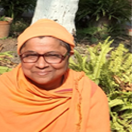
Monastic Professor
View Profile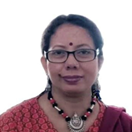
Assistant Professor
View Profile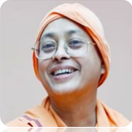
Monastic Professor
View Profile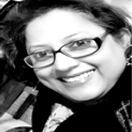
Associate Professor
View Profile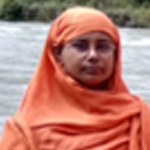
Monastic Faculty
View Profile| Academic Calendar | Download |
| ACADEMIC CALENDAR 2024 | View |
| ACADEMIC CALENDAR JAN-2023 DECEMBER-2023 | View |
| ACADEMIC CALENDAR JULY-2022 DECEMBER-2022 | View |
| ACADEMIC CALENDAR JULY-2021 JUNE-2022 | View |
| ACADEMIC CALENDAR JULY-2020 JUNE-2021 | View |
| ACADEMIC CALENDAR JULY-2019 JUNE-2020 | View |
| ACADEMIC CALENDAR 2018-19 | View |
| Routine from 2018 to 2024 | Download |
| ODD SEM 2024 (JULY-DEC) | View |
| EVEN SEM 2024 (JAN-JUNE) | View |
| ROUTINE UG EVEN SEM 2023 | View |
| ROUTINE Even Sem 2022 | View |
| Philosophy Routine Odd Sem 2022 | View |
| ROUTINE Odd Sem 2021 | View |
| Phil Master routine for Even Sem 2021 | View |
| Routine Odd Sem 2020 | View |
| Routine Even Sem 2020 | View |
| rOUTINE 2019 | View |
| Routine 2018 | View |
| Routine from 2018 to 2023 | Download |
| LESSON PLAN SEM 2,4,6 – 2024 | View |
| REVISED LESSON PLAN (2024-25)UG SEM I NEP MODEL NEP SEM3 & SEM5 | View |
| Lesson Plan 2018-19 , 2nd yr, 3RD YR & SEM1. PR.VR, PR.I, A.S, .B.pdf revised & final | View |
| Lesson plan Philosophy 2019 July – December (1).pdf REVISED & FINAL | View |
| Philo. Lesson Plan & Course Outcome 2022-23 | View |
| REVISED LESSON PLAN UG PHILOSOPHY SEM I NEP MODEL 2023 & CBCS SEM3 & SEM5(2023-24) | View |
| Study Material | Download |
| Document 242.pdf MAJOR I spinoza’s substance theory | View |
| SEM 4 CC9 UNCONSCIOUS | View |
| SEM VI RUSSELL STUDY MATERIAL | View |
| SEMESTER 1 – ON DESCARTES | View |
| SEMESTER 1 CBCS CC2 STUDY MATERIAL 2 | View |
| SEMESTER 1 INTERACTIONISM STUDY MATERIAL | View |
| SEMESTER 2.pdf CBCS CC3 STUDY MATERIAL | View |
| SEMESTER 4 BC CC9 STUDY MATERIAL | View |
| SEMESTER1 PHIACOR01 Plato’s Theory of Knowledge (প্লেটোর জ্ঞানতত্ত্ব) | View |
| SEMESTER1, CC2 – Rules of sentence to proposition | View |
| SEMESTER1, CC2 Rules of Truth Tree method(সত্যশাখী পদ্ধতি) | View |
| SEMESTER2 ,CC3 সামান্য বা জাতির লক্ষণ | View |
| SEMESTER2, CC3 বিশেষ | View |
| SEMESTER4, CC10 Linga | View |
| SEMESTER4, CC10 Prama, Aprama | View |
| SEMESTER4, CC10 পক্ষ, সপক্ষ ও বিপক্ষ | View |
CONTINUOUS EVALUATION 2024
In 2024, apart from the regular class tests and tutorials, the internal examination Mock Test was taken by the different teachers of the department of even semester students. Few question papers and scripts of internal examinations and class tests are presented below.
CONTINUOUS EVALUATION 2023
In 2023, apart from the regular class tests and tutorials, the internal examination was taken by the different teachers of the department like 4th May, CC14 of semester 6, CC10 of semester 4 on 23rd June etc.
Few question papers of internal examinations and class tests are presented below.


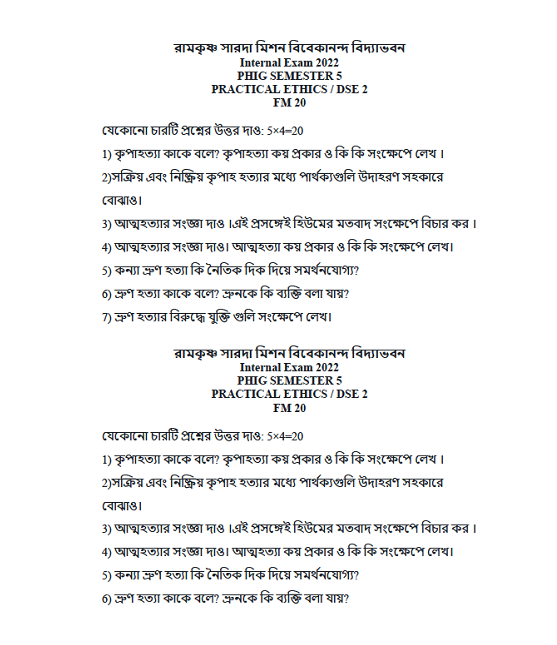






CONTINUOUS EVALUATION 2022
After the end of pandemic situation when the classes resumed from early months of 2022, the department of Philosophy started preparing the students to give offline exams. For this frequent class tests, practice tests and tests for betterment of advanced and slow learners were taken at regular intervals. Within 2nd May to 23rd May, internal examinations of semester 2, 4, and 6 were taken in offline mode. Mock tests of semester 2, 4 & 6 were also taken just before the commencement of University exam on 22nd and 23rd of May 2022. In the July to December session 2022, the internal exam of semester 3 and 1 were taken on 20.12.2023 and 27.12.2023 respectively.
CONTINUOUS EVALUATION 2021
Due to the Covid-19 pandemic situation, the department of philosophy had to take online assessments in 2021(January to June session). However, the faculty members took the mock tests of Semester 2, 4 & 6, before the commencement of online University examination within 23.7.21 – 24.7.21. in the July 2021 – December 2021 session, Mock test of Semester – 1, 3, & 5 was taken on 7th and 8th January 2022. Internals were taken online within the stipulated period set by the college authority.
CONTINUOUS EVALUATION 2020
The department of Philosophy is committed to provide all round support to their students. For betterment of both advanced and slow learners, the teachers take continuous class tests, mock tests and internal examinations at regular interval. Due to the onset of pandemic situation from March 2020, the College advised the teachers top take online internal and class tests in that session. On 6th April 2020 online internal tests were taken for 2nd and 4th semesters.
CONTINUOUS EVALUATION 2019
The Department of Philosophy arranged for continuous assessments of students in the form of class work, class test, mid-term throughout the year. In 2019, within 9th to 19th September mid-term examination was taken for continuous revision of the texts. Particularly, the department organized Tests just before the final year examination. 3rd year Test exam started from 4th January 2020 and ended by 10th January, 2020. Within 7th to 15th November, Internal exam of Ist and 32rd Semester was taken. 3rd year Honours and General Test exam was taken within 4th January – 10th January
CONTINUOUS EVALUATION 2018
The Department of Philosophy arranged for continuous assessments of students in the form of class work, class test, and Test throughout the year. Particularly, the department organized Tests just before the final year examination so that the students can prepare themselves well before the final exam. In 2018, 3rd year Honours and General Tests were taken within 10th – 15 January, and Ist and 2nd year tests were taken within 18th January to 2nd February 2018.
| EXTENSION LECTURE LIST & REPORT | Download |
| EXTENSION LECTURES WITH REPORT | View |
| LIST EXTENSION LECTURES, SEMINARS & WEBINARS | View |
Extension Lectures
| 30.1.17 | Retd. Asso. Prof. Sm. Miratun Nahar
Victoria Institute (College) |
Bauddha Philosophy |
| 9.2.17 | Retd. Prof. Subir Ranjan Bhattacharya Calcutta University, Kolkata | Kant’s Ground Work |
| 16.2.17 | Prof. Dr. Pralayankar Bhattacharya Calcutta University, Kolkata | Rawls Theory of Justice |
| 23.2.17 | Asso Prof. Dr Sanghamitra Dasgupta
Jadavpur University, Kolkata |
Jaina Philosophy |
| 16.3.17 | Retd Prof. Tapan Kr Chakraborty Jadavpur University, Kolkata | Brahma’s Laksana |
| 18.3.17 | Retd.Prof. Tapan Kr Chakraborty Jadavpur University, Kolkata | Brahma’s Laksana |
| DATE | RESOURCE PERSON | NATURE OF EVENT | TOPIC
|
No. of Participants | ||
| 3.2.18 | Asso Prof. Dr Sanghamitra Dasgupta, Derozio College | Extension activity | Jaina Philosophy | 10
(UG sem2) |
||
| 16.3.18 | Retd Prof. Tapan Kr
Chakraborty Jadavpur University, Kolkata |
Seminar talk | Vedanta Philosophy | 30
(UG sem 2 &6) |
||
| INDIAN COUNCIL OF PHILOSOPHICAL RESEARCH Sponsored
Periodical Lecture Series (Based on CBCS Syllabus) on 18.3.19,25.3.19,29.3.19 |
40 (invited guests)
and students |
|||||
| 18.3.18 | Prof. Amita Chatterjee
Emeritus Prof., School of Cognitive Science, Jadavpur University, Kolkata |
Periodical Lecture | Relation between Philosophy of Mind and Psychology | 40(invited guests)
and students |
||
| 25.3.18 | Prof. Mausumi Guha
Jadavpur University, Kolkata |
Periodical Lecture | Behaviourism – Methodological and Philosophical | 40 (invited guests)
and students |
||
| 29.3.18 | Prof Madhuchhanda Sen
Jadavpur University, Kolkata |
Periodical Lecture | Dualism, its types and alternatives. | 40 (invited guests) and students | ||
| 14.1.19 | Asso.Prof. Sangita Dey Sarkar | Extension lecture | Kant’s Critique of Pure Reason | 10 UG sem3 | ||
| 20.2.19 | Asso.Prof. Sangita Dey Sarkar | Extension lecture | Kant’s Critique of Pure Reason | 10 UG Sem3 | ||
| 25.3.19 | Asso.Prof. Sangita Dey Sarkar | Extension lecture | Kant’s Critique of Pure Reason | 10 UG Sem 3 | ||
| 11.5.19 | Prof. Roma Chakraborty,
, Retd Professor. Dept of Philosophy, CU (in Higher Study Circle) |
Extension lecture | Dualism | 15 UG Sem 1 | ||
| 17.9.19 | Prof. Rupa Banerjee, Jadavpur University, Kolkata | Extension lecture | Sankhya Philosophy | 30 UG Sem 2 and 4 | ||
| 31.7.20 | Prof. Ratna Dutta Sharma, Jadavpur University, Kolkata
|
Online Extension lecture | Upamana Pramana) | 25
UG Sem 2 and 4 |
||
| 11.8.20 | Prof. Kuntala Bhattacharya, Rabindrabharati University, Kolkata
|
Online Extension lecture | Paramarsha on Nyaya Philosophy
(online Extension Lecture) |
25
UG Sem 4 & Sem6 |
||
| 3.10.20 | Prof. Kuntala Bhattacharya, Rabindrabharati University
|
(online Extension Lecture) | Jaina Philosophy
|
12
UG Sem4 |
||
| 9.10.20 | Prof. Kuntala Bhattacharya, Rabindrabharati University | (online Extension Lecture) | Sabda khanda on Nyaya Philosophy
|
13
UG Sem6 |
||
| 21.1.21 | Prof. Raghunath Ghosh North Bengal University | (online Extension Lecture) | Advaita Vedanta
) |
25
UG Sem 4 & Sem6 |
||
| 26.1.21 – 15.3.21 | Sri Subir Ranjan Bhattacharya, Retd Professor. Dept of Philosophy, CU
|
(online Extension Lecture) | Series of lectures on Linguistic Philosophy
|
28
UG Sem 4 & Sem6 |
||
| 30.1.21 | Prof. Atashee Chatterjee Sinha, Jadavpur University | Web Talk | Care Ethics in collaboration with WBSU
|
30 UG Sem6 and
PG Sem3 |
||
| 5.7.21 | Rtd. Prof. Sumita Banerjee,
Jaipuria College |
Web Talk | Nyaya Philosophy | 15
UG Sem6 |
||
| 27.9.21 | Rtd. Prof. Sumita Banerjee,
Jaipuria College |
Web Talk | Jaina Philosophy | 15
UG Sem5 |
||
| 6.11.21 | Prof. Mridula Bhattacharya,
Burdaman University |
Web Talk | Vedanta Philosophy | 25
UG Sem5 |
||
| 14.12.21 | Prof. Kuntala Bhattacharya, Rabindrabharati University | Web Talk | Vedanta Philosophy | 25
UG Sem5 |
||
| 23.12.21 | Asso.Prof. Sangita Dey Sarkar | Web Talk | Kant’s Critique of Pure Reason | 14
UG Sem3 |
||
| 25.12.21 | Prof.Sunil Roy | Webinar | Aristotle’s Metaphysics | 23
UG Sem 1 and PG sem3 |
||
| 4.1.22 | Asso.Prof. Sangita Dey Sarkar | Web Talk | Kant’s Critique of Pure Reason | 14
UG Sem 3 |
||
| 18.1.22 | Sri Subir Ranjan Bhattacharya, Retd Professor. Dept of Philosophy, CU
|
Web Talk | Web Talk on Traditional Logic to Modern Logic | 60
All students of three semesters |
||
| 12.2.22 | Prof. Santosh kr. Pal
Burdaman University |
Web Talk | Web Talk on Meta Ethics | 14
UG Sem 4 |
||
| 13.2.22 | Prof. Santosh kr. Pal
Burdaman University |
Web Talk | Web Talk on Meta Ethics | 14
UG Sem 4 |
||
| 24.3.23 | Sri Subir Ranjan Bhattacharya, Retd Professor. Dept of Philosophy, CU
|
Seminar Talk | Seminar Talk on Russell | 14
UG Sem 6
|
||
| 27.3.23 | Dr. Sushmita Bhowmik,
Assistant Professor, Diamond Harvour University |
Seminar Talk | Aurobindo on Evolution & Involution | 14
UG Sem 6 |
||
| 28.3.23 | Dr.Bikash Mondal, Assistant Professor,WBSU | Seminar Talk | Ambedkar on Class & Caste | 14
UG Sem 6 |
||
| 21.4.23 | Dr. DebikaSaha, Assistant Professor, North Bengal University | Sreminar Talk | Seminar Talk on Russell | 14
UG Sem 6 |
||
| 22.4.23 | Dr. Shyamashree Bhattacharya, Assistant Professor,Calcutta University | Seminar talk | Seminar Talk on RUSSELL | 14
UG Sem 6 |
||
| 22ND & 29TH May,
5th, 12th,19th & 26th June-2023 |
Dr. Pushpa Misra, Former Principal Bethune College | Lecture Series | Series of lectures on The Causal Principle | 14
UG Sem 6 |
||
| 12.8.23 | Dr. Ranjana Mukherjee, Retd. Professor, RBU | Extension Lecture | Bauddha Philosohy | 15
UG Sem 3 |
||
| 1.9.23 | Arifa Khatun | PARAMPARA Class | Descartes’s Philosophy | Semester I | ||
| 20. 9. 23 | Dr. Sharmishtha Bakshi | Extension Lecture | Revisiting Plato & Aristotle: Epistemological and Metaphysical Exposition |
25 UG Sem I and PG Sem 3 |
||
| 29.9.23 | Hritu Mukherjee | PARAMPARA Class | Outlines of Indian Philosophy | Post Graduate students | ||
| 9.10.23 | Aditi De | Extension lecture | A Critical analysis On Descartes’s Criteria of Truth | Semester I | ||
| 24.11.23 | Hritu Mukherjee | PARAMPARA Class | Hospers on Ambiguity | Semester V | ||
| 30.11.23 | Multiple speakers. | Seminar on World Philosophy Day | Revisiting Environmental issues From the Perspective of Indian Knowledge System
|
Students of RKSMVV & other colleges | ||
| 10.1.24 | Prof. Proyash Sarkar | Extension Lecture | “Speech Acts – P Alston” | Semester V students | ||
| 1.3.24 | Hritu Mukherjee | Parampara Class | A Critical Reflection on Leibnitz’s Theory of Substance and Knowledge. | Semester I | ||
| 7.3.24 | Students of Semester VI | Inter-Disciplinary Student’s Presentation | Observance of International Women’s Day | Semester I, IV & VI students of Philosophy and Education. | ||
| 15. 3.24 | Pallabi Mondal | Parampara Class | A Critical Reflection on Hospers’s Theory of Knowledge. (Part I) | Semester VI | ||
| 23.3.24 | Pallabi Mondal | Parampara Class | A Critical Reflection on Hospers’s Theory of Knowledge.
(Part II) |
Semester VI | ||
| OUR ACHIEVERS | Download |
| OUR ACHIEVERS | View |
HRITU MUKHERJEE (2021-23 M.A batch )
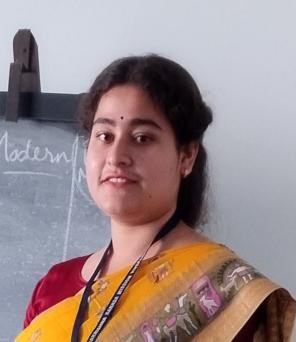
I am Hritu Mukherjee of 2021-23 M.A batch in Philosophy. At present, I am preparing for UGC-NET. Though now I am alumni but still I do many social works for my Vidyabhaban. It is not only an Institution, it’s our second home. When l hear the word ” Vidyabhaban” l feel refreshed . Vidyabhavan had not only educated us in academics but also taught us to be good human beings. I am very thankful to God & feel blessed for having the opportunity to spend golden five years at Vidyabhavan. Mataji and Professor didi are like our own mother . In our Vidyabhaban we all are family members and it is a cultural heritage for students. Lastly, I want to express my gratitude for being a small part of my beloved Vidhyabhavan.
PUJA SAHA (2019-2020 M.A Batch)
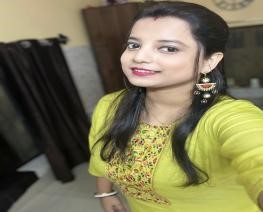
My name is Mrs. Puja Saha. I am currently working at TCS (TATA CONSULTANCY SERVICES) as a Senior Quality Analyst. I am always a proud alumnus of the Department of Philosophy. I completed my Master’s from Vidya Bhavan in 2019. Vidyabhavan, for me, is something beyond college; it’s more like home and the safest place to me. It is where I have found the perfect definition of culture, discipline, and education in every manner, helping me to become a successful and honest human being. I am forever grateful to eternity for the opportunity to be a part of Vidyabhavan. All my respected teachers and Matajis’ were there for my overall well-being. They always encouraged me to build my confidence and helped me find the real meaning of life.
RIYA MONDAL (2022-23 M.A BATCH)
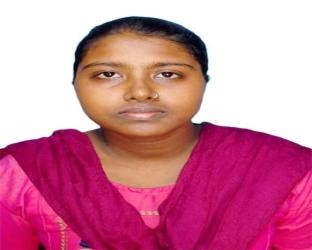
Riya Mondal, Ex-student Department of Philosophy, Ramakrishna Sarada Mission Vivekananda Vidyabhavan, West Bengal State University. I am a proud ex- student of this college.The best thing about our college is its campus.The big spacious campus is adorned with natural beauty which gives a peaceful atmosphere congenial for studying. Vidyabhavan has a name and fame for its discipline, environment, culture and Value education.I am forever grateful to the entire staff and teachers of this college because they are helpful , friendly and supportive to the students.The senior and juniors have a good bonding on the campus.
ARIFA KHATUN(2022-23 BATCH)
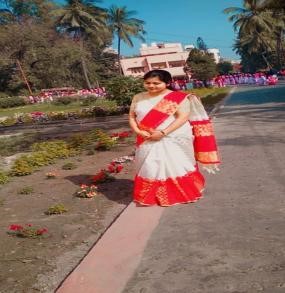
My name is Arifa Khatun. My college name is Ramkrishna sarada mission vivekananda vidhyabhavan .I am proud to have studied in this vidhya bhavan for five years.After living in such a beautiful environment, it feels like my second home .As all the matajis and teachers of vidhya bhavan have helped me for five years.My home is sundorbon,my father is a farmer ,but I wanted to study philosophy and know philosophy deeply and I was able to fulfill that dream to some extent from this college. Then I will say that this college helped me financially or in many ways to continue my studies .Now I am currently doing B.ed,After B.A and M.A from this college. I am trying to continue my studies in future.
Shima Joddar (Batch 2018-2021)

First and foremost, I would like to extend my thanks to my college Ramakrishna Sarada Mission Vivekananda Vidyabhavan for giving me a chance to be a part of my dream job. I am privileged and honoured to be part of my college. My sincere gratitude to Principal Prabrajika Vedarupprana Mataji and others professor and management team for the all encouragements, motivation, support, help, assistance, kindness, patience, understanding, advice and guidance, and always being there for me. I am from a small village of Sundorbon in West Bengal. This college gave me the opportunity to fulfil my dream. My college played a significant role in my career. Now I am working as a Resource Person at Ramakrishna Mission Vivekananda Institute of Values, Delhi.
Shukla Das (Batch – 2008-2011)
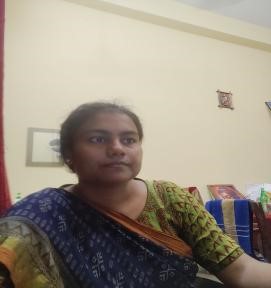
I Shukla Das is an alumni of Department of Philosophy of Ramakrishna Sarada Mission Vivekananda Vidyabhavan. I graduated from this College on 2011. At present I am Assistant Professor of Philsophy, Malda College. To me, Vidyabhavan is not a mere College , it is an institution that inspired me overcome all my shortcomings and reach my goal. The green serene campus of our college always give me a peace of mind which I never feel elsewhere in the world. Vidyabhavan is not merely an educational institution to me. It is rather like my maternal home. All the faculty memebers of my department extend their guidance and support whenever I needed it. This motherly care of our teachers are treasure to us. They have not only taught us the core philosophical arguments but gave us the life lessons that helped us to build an integrated carrier. From our department I also learn about values of life. I feel proud to be a student of Vidyabhavan.
